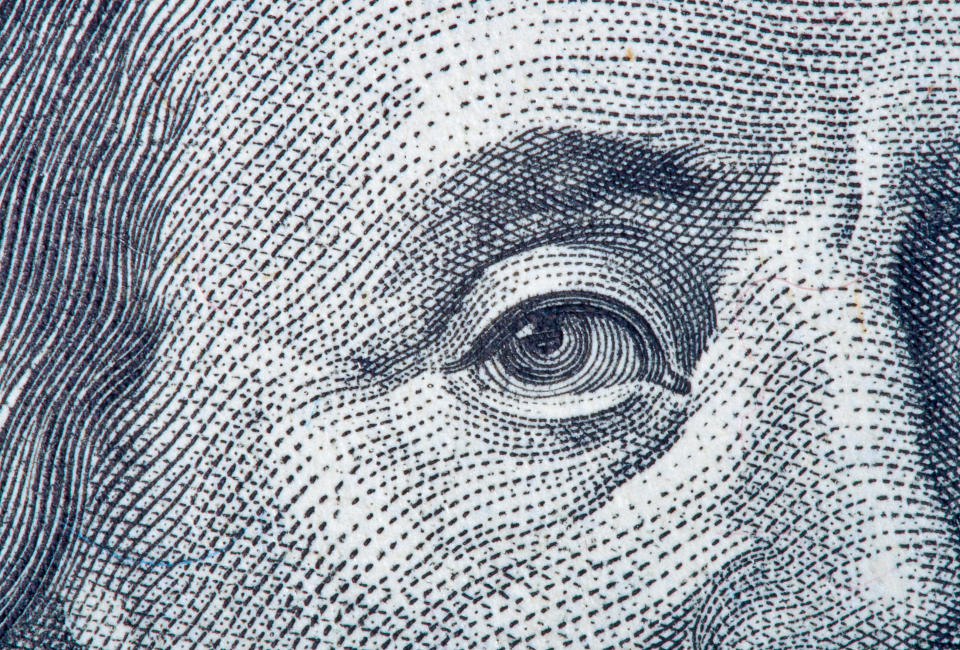Trump is falling short on taming the deficit—here's why 'it could get ugly'
The federal government is running a vast ocean of red ink that shows no signs of drying up. Can Uncle Sam keep spending without dire consequences?
According to the newest estimate from the Congressional Budget Office (CBO), the U.S. budget deficit hit $984 billion in fiscal year 2019. That amounts to a whopping 4.7% of U.S. gross domestic product — the highest level since 2012.
And it’s not a shortage of money that’s the problem. While the CBO reports that tax revenues were 4% higher in FY 2019 compared to FY 2018, federal outlays increased by 7%.
Yet for all sorts of reasons, bond investors haven’t been worried. Fears about the global economy, coupled with the U.S.-China trade war, have sent yields to historic lows. At least for now, the status quo doesn’t appear to be in jeopardy.
“This is something that’s likely going to continue,” Edelman Financial Engines founder Ric Edelman told Yahoo Finance’s YFi PM. “I’m more concerned about the deficit than the debt, which might seem to be an inherent contradiction. It’s the question of how much deeper you’re digging the hole.”
President Donald Trump’s “theory is that lowering taxes without lowering government spending will help to create growth,” Edelman says. “The growth will result in more tax revenue which will pay for the costs of running the government.”
‘It could get ugly’
Revenue sources like corporate income taxes jumped by 12%, according to the CBO. But that extra revenue is quickly swallowed by spending on major mandatory programs—such as Social Security and Medicare—which saw their outlays climb by 6%. Interest payments on spiraling U.S. public debt leaped by 14% while costs for the military rose by 8%.
The fact that this spending binge and deficit pileup is happening during the longest economic expansion in modern U.S. history makes fiscal hawks like Edelman particularly uneasy.

“Imagine what happens if we in fact run into a recession,” he warned. “That means we’re going to face austerity. We’re going to see a combination of tax increases and government cuts in spending.”
The fact that a significant number of Americans have little in savings or liquid financial assets like stocks to fall back on gives Edelman even further cause for concern.
“It could get ugly for a lot of parts of American society,” according to Edelman. “The real question is: to what degree will this matter in the upcoming presidential campaign?
Nick Robertson is a senior producer at Yahoo Finance.
READ MORE:
Follow Yahoo Finance on Twitter, Facebook, Instagram, Flipboard, SmartNews, LinkedIn, YouTube, and reddit.
